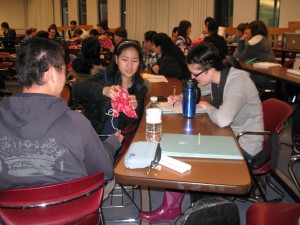Ah, May is upon us. Term grades have been submitted, and I’m just cleaning up a few loose ends from the term and year. I am feeling a sense of calm and space that I haven’t had in a while. This space is allowing me to ponder my teaching and learning (T&L) activities from a broad perspective, rather than the day-to-day rush of preparations and delivery. The latter is, of course, vitally important to T&L, but for me, my meaning and purpose is derived largely from these reflective times.
After surviving my first year as full-time faculty, I am pleased to report that I still love T&L!! It has been far from easy to make it through daily preparations for class, exams and assignments, and committees, meetings with students (both graduate and undergraduate), and so on. This year I have learned much about the material I was teaching, my students, and who I want to be as a teacher. I believe I did well this year (student evals forthcoming), under the pressing circumstances, but not as well as I would like. I am excited at the promise of preparing for next year, and for having the time and space to do it better. That is, for me, one of the many joys of teaching: Each year being more effective than the last.
I look forward to documenting here my journey this summer as I work toward bettering my courses and myself for my students in 2010/2011.

 Follow
Follow
